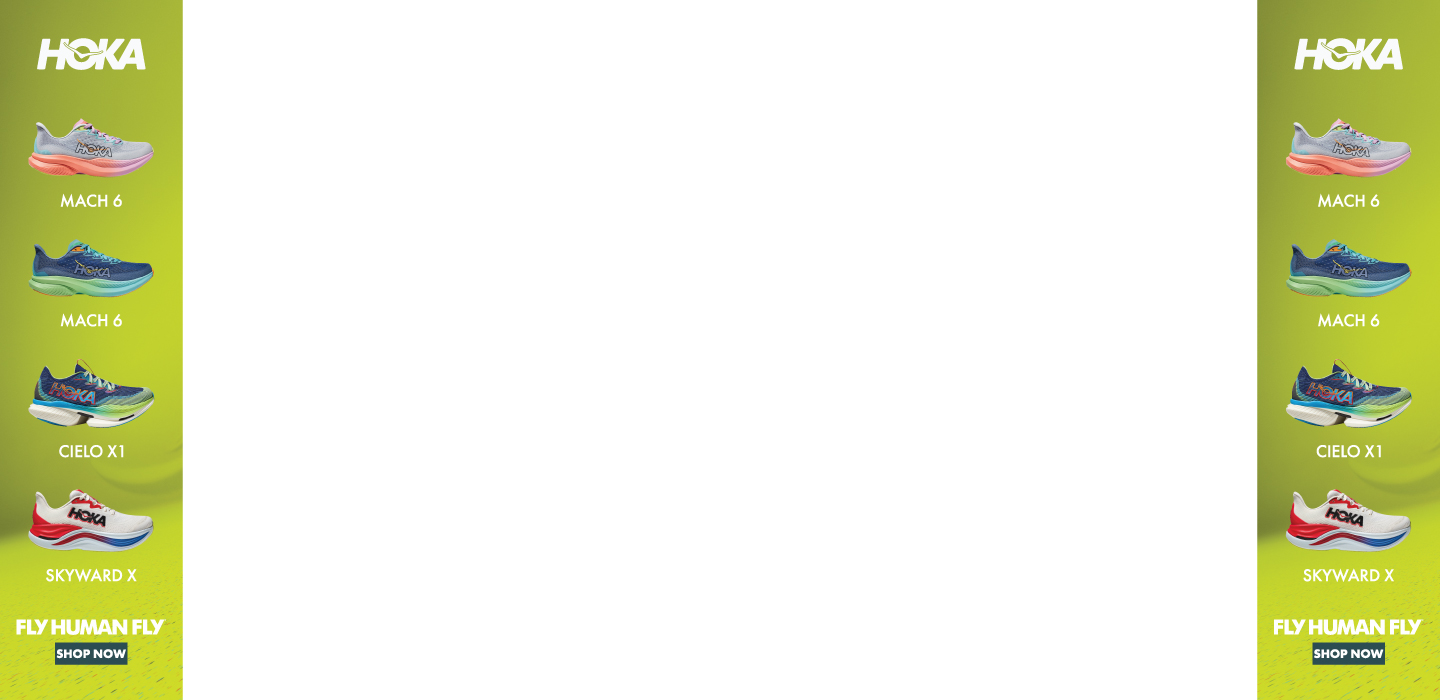6 Ways To Increase Your Mileage, Not Your Weight!
Fuel your marathon training without sabotaging your waistline.
Few runners begin week one of marathon training without the thought of “just what I need to jumpstart my weight loss!” After all, marathon training demands plenty of sweat sessions, which means lots of kilojoule-burning. The kilojoule math is fairly straightforward: the average marathoner in training covers 56 kilometres a week for 16 weeks, burning approximately 420 kilojoules per 0.45km. That comes to 234,304 kilojoules scorched during training. A kilojoule burn this huge in any other sport would likely result in significant weight loss. So why is it that most of us arrive to the starting line somewhat dissatisfied in our weight loss efforts or, worse still, upset over our weight gain?
Increased Appetite
The first obvious culprit is answering the call of our voracious appetite. As mileage and intensity increase, an increase in appetite and food intake naturally follows. In his book Racing Weight, Matt Fitzgerald explains that “chronic exercise increases the sensitivity of the body’s hormonal appetite-signaling system…and alters the pleasure response to food in a way that significantly boosts kilojoule intake.” In other words, the more we work out, the more we want to eat, and the more we enjoy doing so.
Which makes sense: who hasn’t at one point or another said, “I run to eat” rather than “I eat to run?”
Marathon training kilometres do burn kilojoules, and the constant stress on the body does call for food-for-recovery. But it’s important to keep the kilojoules in your postrun meals and snacks in check.
Refuel Properly
Recover with a protein shake that’s high in protein for your muscles but low in sugar and has an appropriate amount of kilojoules. A salad topped with antioxidant-rich berries and protein-packed grilled chicken will also do the trick.
For optimal recovery, eat 15 to 25 grams of protein within 30 minutes after a workout. The protein will help stop muscle breakdown and begin to repair them. Add some carbohydrates – about 2 to 4 times as much carb as protein – to this small meal or snack in order to restock your glycogen stores and prime your muscles for performance.
RELATED: 20-Week Foolproof Beginners Marathon Training Programme
Plan ahead when it comes to postrun refueling. If you drive to a trail to run, pack a nutrient- and protein-rich snack that’s waiting for you when you get back to the car. If you’re at home, you can set up your blender or have your sandwich fixings ready for quick prep.
“I-Earned-It” Mentality
It’s common to common to fall into the mindset of “I earned it, I can eat anything.”
Yes, that 24 kilometre did burn more than 6280 kilojoules. But you also consumed fuel while out there (right? right?!), and if you eat more than what you burned (people tend to think they burn more than they actually did and that food has fewer kilojoules than it actually does), you effectively undid your heard-earned weight burn.
Don’t Reward Yourself With Food
While the extra mileage does allow for an extra serving or a slice of cake once in awhile, do your best to not reward yourself with food. Reward those kilometres with extra gear, a relaxing massage, or movie night. (Note: this tip applies to much of life, not just marathon training)
Need some tips to survive your training? We’ve got you covered.
RELATED: 5 Ways To Stay Hydrated During Long Runs
Dehydration
Another weight gain trap is dehydration. You feel starving after a long summer run, but actually you’re dehydrated and need fluids. If you don’t replace what you’ve lost during a sweat session, you’re likely to be plagued by hunger for hours to come. Avoid this by rehydrating as soon as you kick off your shoes and throughout the day.
Refuel With Fluids
Grab water with electrolytes (think sports drink or water with a handful of pretzels) to help replace both fluids and salts lost. Trending now, are refreshing watermelon water and maple water, both of which contain electrolytes and micronutrients that your body needs after a marathon training run in the heat.
RELATED: 6 Tips For Fuelling Before & During A Race
But even with the threat of marathon weight gain, don’t skimp on calories. Not fuelling properly leads to poor performance, low energy, and increased risk of injury. At the end of the day, the ability to crank out a run and perform is going to burn more kilojoules than if you’re fatigued and skip the workout or, worse still, are sidelined as the result of an injury (due to decreased kilojoules).
Ready to tackle your first or best marathon? Here’s what you need to know.
READ MORE ON: marathon marathon training nutrition running weight loss



